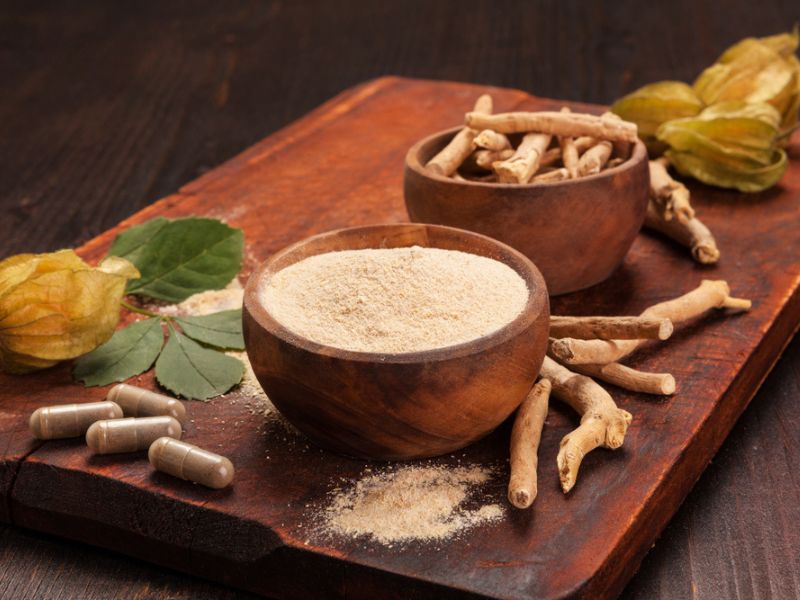Recently, there has been a growing interest in using natural remedies for stress management. One herb that has gained significant attention is ashwagandha. Derived from the Withania somnifera plant, ashwagandha has been used for centuries in Ayurvedic medicine for its various health benefits. Let’s explore what experts say about using ashwagandha as a stress treatment.
Ancient Tradition Meets Modern Research
Ayurvedic practitioners have long praised ashwagandha for its ability to combat stress and promote relaxation. However, modern research has also provided scientific evidence supporting its effectiveness. Studies have shown that ashwagandha may reduce cortisol levels, a hormone associated with stress, thereby improving overall well-being.

Image Credit: Shutterstock/Indian Food Images & Pexels/emre keshavarz
Adaptogenic Properties
Ashwagandha is classified as an adaptogen, which means it helps the body adapt to stressors and maintain a state of equilibrium. This adaptogenic property makes it a valuable tool for stress management. Experts suggest that ashwagandha may enhance the body’s resilience to physical and mental stress.
Anxiety Reduction
Chronic stress often leads to anxiety disorders. Research suggests that ashwagandha may have anxiolytic effects, helping to alleviate anxiety symptoms. Studies have demonstrated its potential to reduce anxiety levels and improve overall mood.
Neuroprotective Effects
Stress can negatively impact the brain, leading to cognitive impairment and memory problems. Ashwagandha has shown promise in protecting the brain against the harmful effects of stress. It may help enhance cognitive function, memory, and concentration.

Image Credit: Shutterstock/Eskymaks
Sleep Aid
Stress often disrupts sleep patterns, resulting in poor sleep quality and insomnia. Ashwagandha has been found to possess sleep-enhancing properties. It may help improve sleep duration and quality, allowing individuals to wake up refreshed and rejuvenated.
Dosage And Safety
While ashwagandha appears to be a promising stress treatment, it’s important to note that the appropriate dosage and quality of the supplement are crucial. Consulting with a healthcare professional or an Ayurvedic practitioner is recommended to determine the proper dosage for individual needs. Ashwagandha is typically safe in moderation, but it’s essential to be aware of potential side effects and medication interactions.